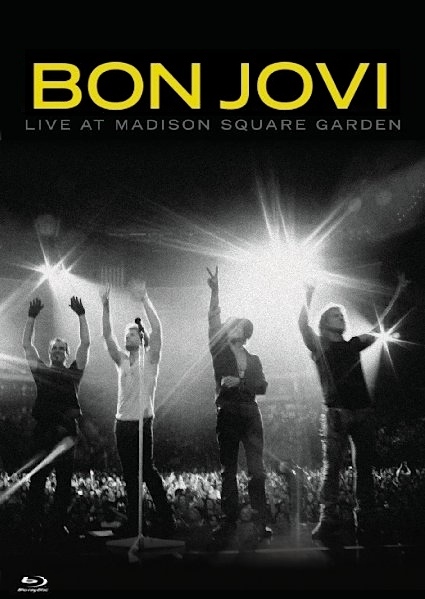
Beethoven Orchester Bonn, Stefan Blunier – Anton Bruckner: Symphony No. 8 WAB 108 (Version 1890) in C minor (2011)
2xSACD | SACD ISO (2.0/MCH): 4,62 GB | 24B/88,2kHz Stereo FLAC: 1,34 | Full Artwork
Label/Cat#: MDG “Live” # 937 1713-6 | Country/Year: Germany 2011 | 3% Recovery Info
Genre: Classical | Style: Romantic, Orchestral
Review by Blair Sanderson
Even though Stefan Blunier’s 2011 recording of Anton Bruckner’s Symphony No. 8 in C minor is a lot to digest, timed at over 88 minutes and stretched almost to the breaking point, this is a deeply compelling performance and an impressive recording that deserves all the time listeners devote to it. Blunier leads the Beethoven Orchester Bonn at surprisingly slow tempos in the first and third movements, which, with some extra time taken in the Scherzo’s Trio and the Finale, add approximately nine minutes to this already expansive symphony. In other conductors’ hands, the drawn-out pacing could be lugubrious and lethal, yet the highly nuanced interpretation and sensitive playing keep this music at a level of nervous energy that tenaciously holds the listener’s attention, even when the beat is at its slowest. The Eighth is frequently cited for its power and severity, but this rendition is fascinating for its delicacy and moving in its tenderness, particularly in the dark conclusion of the Allegro moderato, and in the heartbreaking aftermath of the Adagio’s climax. This, along with the unmistakable feeling that every note has a pulse and a presence of its own, makes the music play out like a profoundly emotional drama that receives just the time it needs to resolve to a satisfying conclusion. MDG’s natural, unprocessed sound is a great aid to capturing the orchestra’s subtle dynamics, and the live recording has very few extraneous sounds. Highly recommended. allmusicguide
Swiss conductor Stefan Blunier with the Beethoven Orchester Bonn have tackled one of the great monuments of the Romantic musical era in a convincingly monumental fashion. In this new, live recording, the performance is of the second version of the symphony (1890). Either you like Anton Bruckner’s music or youdon’t. I do. This sublime work, the last symphony Bruckner finished, is a crowning achievement, lofty in aspiration and spiritually moving, not to say that his incomplete Ninth is not on the same plane. German music historian H.H. Stuckenschmidt points out in his book Twentieth Century Music, “In a purely musical sphere, the nine symphonies of Bruckner are …(an) expression of cosmic and cyclic thought and creation. Indeed, in Bruckner the principle of variation can be seen on a gigantically-expanded scale.”
Following in the symphonic footsteps of Beethoven, Schubert and Schumann, Bruckner’s musical journey unfolds like a majestic landscape of the actual and of the imagined. It is beautiful, devout, unearthly, scary, awe-inspiring and full of a grandeur vast and magnificent. Blunier and the Beethoven Orchester capture these episodes in a convincing manner. Benjamin Cohrs, who has successfully worked with others on finishing the unfinished final movement of the Bruckner Ninth, points out there are 19 Bruckner symphonies, if you take Bruckner’s first and his revised versions as separate works.
Then there are the various editors’ versions. In the case of the Eighth, there are two versions by Bruckner. The first of 1887 was rejected by conductor Herman Levi. This sent Bruckner into a tailspin, but he did not give up and produced the revised version of 1890. Austrian musicologist Robert Haas, who was working for the International Bruckner Society to prepare proper editions of the composer’s works, published in 1939 a mix of the 1887 and 1890 versions. Haas’ successor Leopold Nowak edited the 1890 version and published it in 1955. This is what Blunier presumably has used in this recording. Later Nowak edited the first 1887 version in 1972. There is an 1892 version by Bruckner and Joseph Schalk which has been discredited by some because of Schalk’s excessive influence in terms of cuts and re-orchestration. Of three great Bruckner conductors, Karajan and Wand prefer the Haas conflation of 1887/1890 and Jochum the Nowak edition of the revised 1890 version. Blunier’s tempos strike a middle ground with a total timing of 88 minutes. I mention this matter of speed, because Bruckner’s symphonies can become intolerable to sit through when dragged out. Celibidache on EMI slogs along, totaling 104 minutes.
Koussevitsky in a well-pruned 1892 Schalk version clocks in at 50 minutes.
The sound of this recording is very good, but not in-your-face spectacular in its SACD surround sound reproduction. The orchestra has plenty of body and is realistic sounding. There is great depth for the brass and timpani, but the sense of space for the front instruments is elusive. MD&G records use what they call a true three dimensional system: 2+2+2. This was not auditioned (due to difficulty setting up the additional speakers). [We have reviewed many of the 2+2+2 releases and will cover more soon…Ed.] —Zan Furtwangler audiophile-audition
Tracklist:
Disc 1:
1 Allegro moderato 18:15
2 Scherzo. Allegro moderato – Trio. Langsam 14:19
Disc 2:
1 Adagio. Feierlich langsam, doch nicht schleppend 29:34
2 Finale. Feierlich, nicht schnell 26:19
SACD ISO
https://xubster.com/qb475zrs24qg/SBSNo8ISO1.part1.rar.html
https://xubster.com/6psdu88tll31/SBSNo8ISO1.part2.rar.html
https://xubster.com/bmqygto0aasc/SBSNo8ISO2.part1.rar.html
https://xubster.com/rejfgefxqggt/SBSNo8ISO2.part2.rar.html
https://xubster.com/qcwy6ahhuieg/SBSNo8ISO2.part3.rar.html
https://hexload.com/ibztgu9hff9y/SBSNo8ISO1.part1.rar
https://hexload.com/r3bby2xtcha9/SBSNo8ISO1.part2.rar
https://hexload.com/5dwsp9vi02xl/SBSNo8ISO2.part1.rar
https://hexload.com/83k4pifmm0g1/SBSNo8ISO2.part2.rar
https://hexload.com/gz3o1vu9vizy/SBSNo8ISO2.part3.rar
Hi-Res FLAC
https://xubster.com/4q5c4miuidw7/SBSNo8FLAC1.rar.html
https://xubster.com/f0b6mgah2w8w/SBSNo8FLAC2.rar.html
https://hexload.com/b6i3pld9fgga/SBSNo8FLAC1.rar
https://hexload.com/ng3wjrbt5veu/SBSNo8FLAC2.rar
Info + Art








![Alban Gerhardt, Deutsches Symphonie-Orchester Berlin, Stefan Blunier – Fitzenhagen: Cello Concertos (2015) [Official Digital Download 24bit/48kHz]](https://imghd.xyz/images/2023/02/02/1w55fQ1.jpg)


